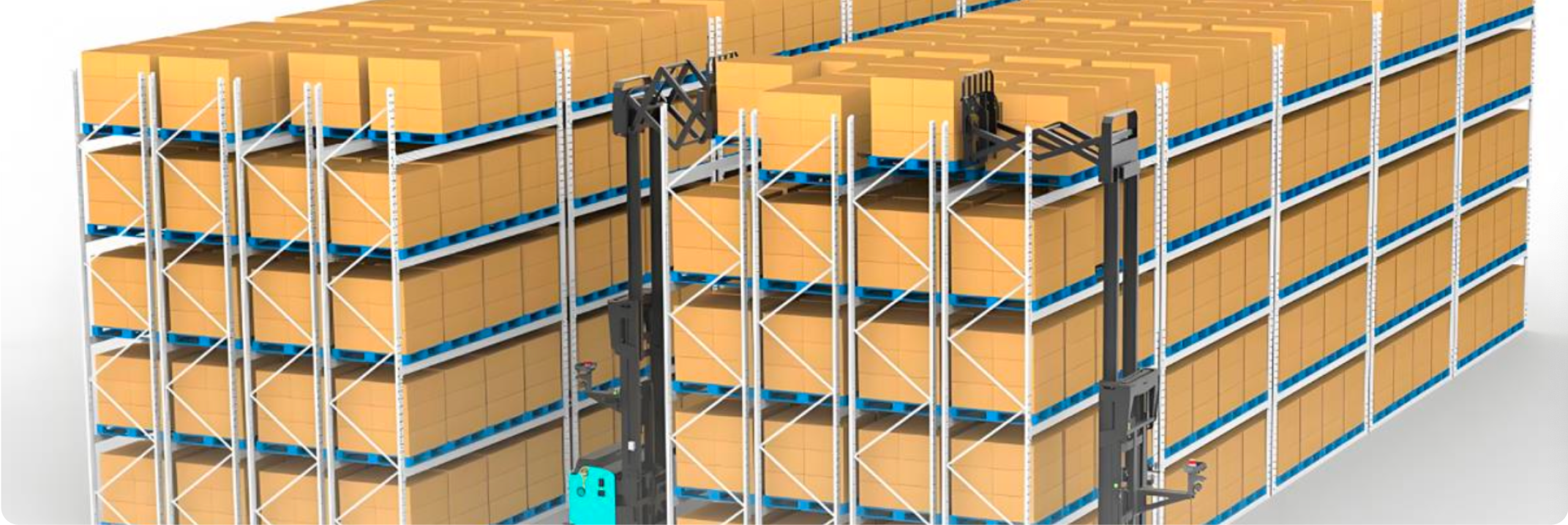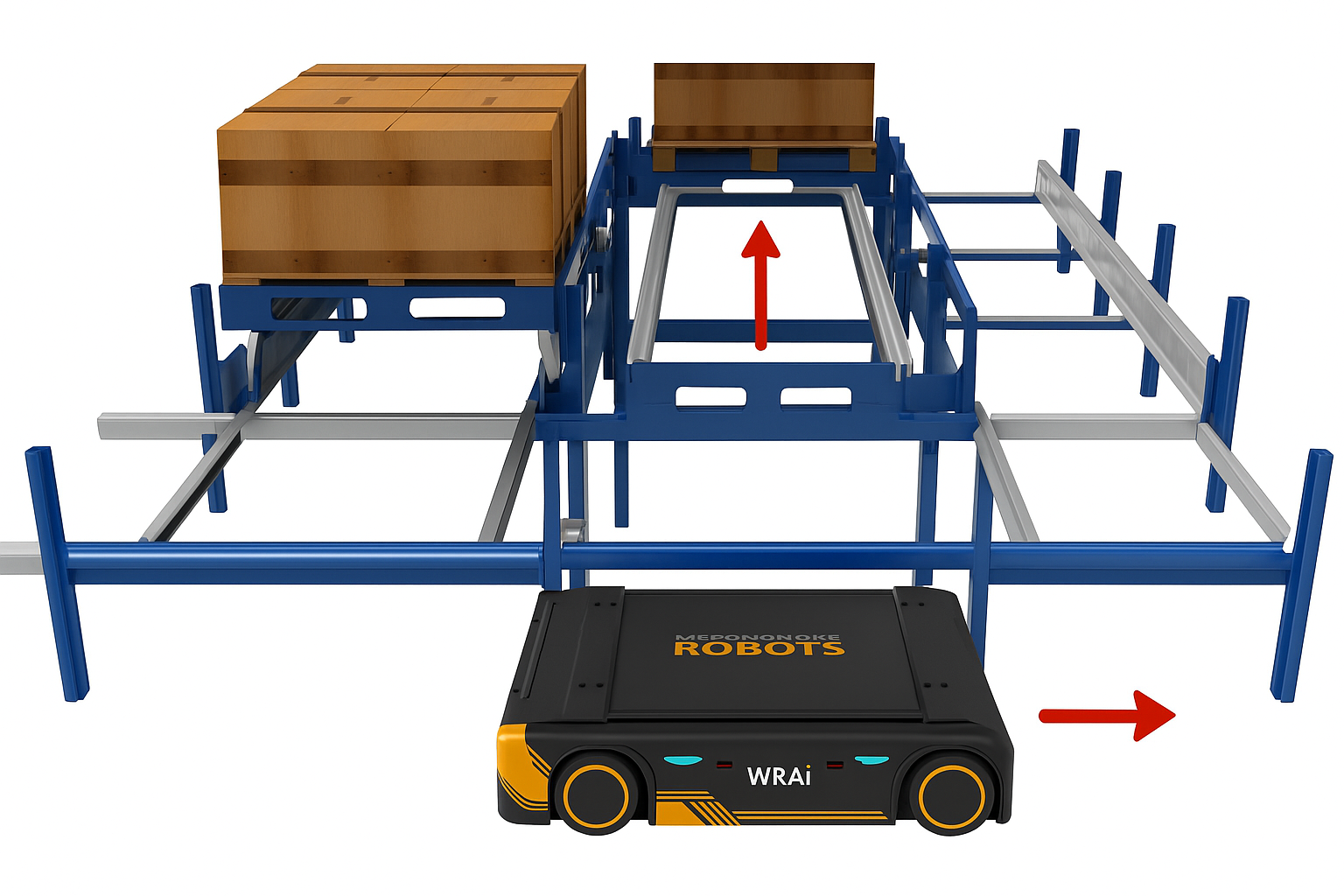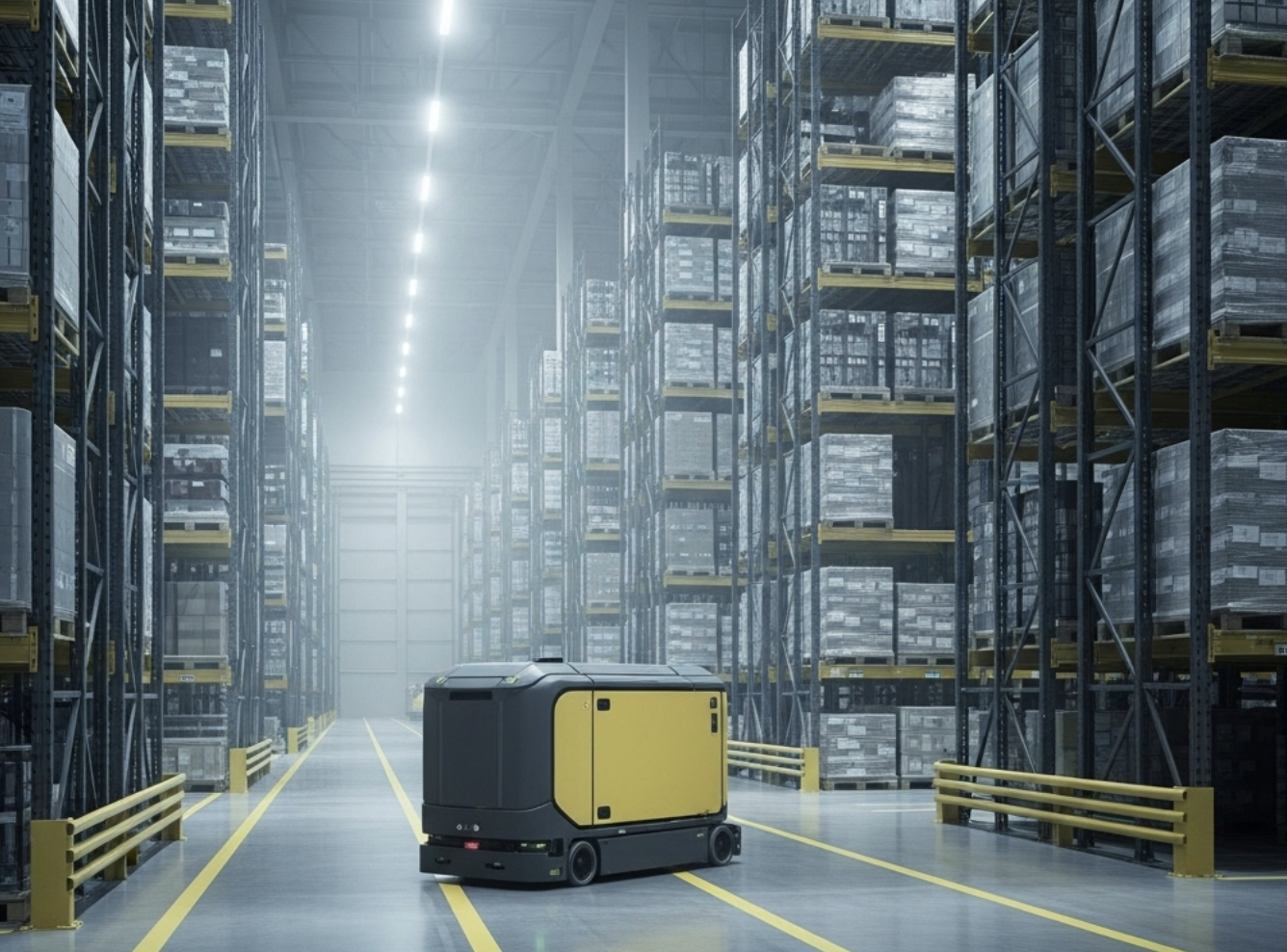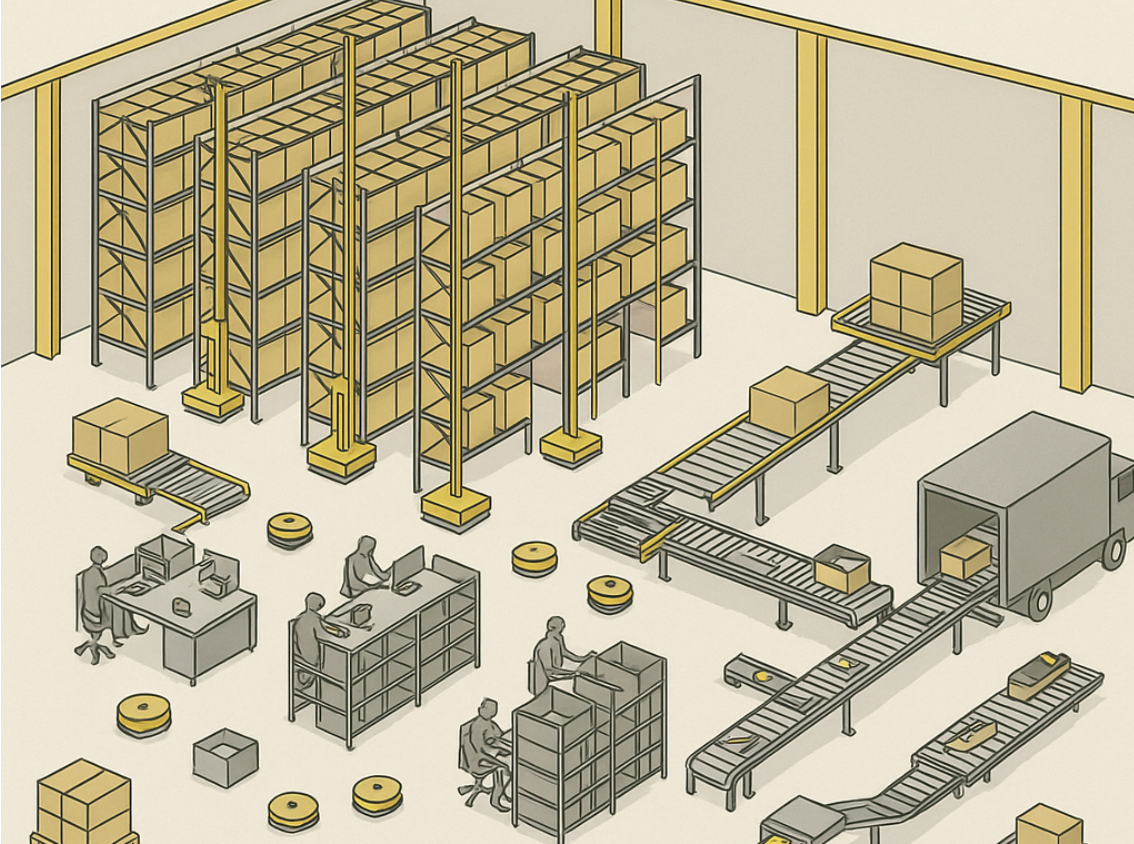GROCERY & RETAIL

FLEXIBLE STORAGE FOR SEASONAL SKU FLUCTUATIONS
High SKU diversity and seasonal inventory shifts overwhelm traditional warehouse systems.
Our Solution: AMR-Based Goods-To-Person System
Supports mixed formats—totes, pallets, cartons, irregulars.
HIGH-DENSITY STORAGE FOR BULK RETAIL GOODS
Items like beverages, oil, and snacks require high-volume storage.
Our Solution: Pallet Four-Way Shuttle System
Fully automated solution that leverages vertical and deep-rack layouts.
SEQUENCED PICKING FOR SMART STACKING
Retailers must follow strict pallet stacking rules (e.g., heavy-on-bottom).
Our Solution: AMR-Based Sequenced Picking System
Ensures AMRs deliver items to pick stations in precise stacking order.
SCALABLE CAPACITY FOR PEAK DEMAND
Seasonal promotions like Black Friday cause order surges.
Our Solution: Hybrid AMR + Fixed Automation Model
Fixed systems handle steady loads; AMRs flexibly absorb demand spikes.
APPAREL

HIGH RETURN RATE / LOW SORTING EFFICIENCY
Return rates in apparel e-commerce reach ~35%.
Our Solution: AMR Shelf-To-Person Returns System
Doubles processing efficiency, supports flexible deployment.
SEASONAL INVENTORY VOLATILITY
SKU layouts must shift rapidly for seasonal promotions.
Our Solution: AMR + Mobile Shelves
Real-time SKU zone reallocation based on sales volume.
HIGH SKU COMPLEXITY / LOW ACCURACY
Footwear & apparel SKUs vary by color, size, gender, width.
Our Solution: AMR-Driven Fulfillment
Supports shelf/tote/pallet-to-person models.
3PL

DIFFICULT DATA INTEGRATION ACROSS SYSTEMS
Clients often use diverse and complex WMS or ERP systems.
Our Solution: Standardized API-Driven WMS/WES
Unified APIs seamlessly integrate with client-side WMS, ERP, and MES. Minimizes custom development, reduces integration costs, speeds deployment.
SEASONAL INVENTORY VOLATILITY
Traditional fixed zoning models lead to underutilized space (avg. <65%) and costly changes.
Our Solution: Dynamic Slotting + Modular AMRs
Deep RL-powered allocation system adjusts zone boundaries in real time. Modular AMRs and racking enable fast reconfiguration.
HIGH SKU COMPLEXITY / LOW ACCURACY
Peak seasons bring 40% temp workers → high forklift error/damage.
Our Solution: AMR-Driven Goods to Person Systems
Reduces forklift reliance, cuts walking distances, adapts to real-time volumes.
COLD CHAIN

LOW STORAGE DENSITY IN -25°C ENVIRONMENTS
Most cold storage sites still rely on manual forklifts and static racking.
Our Solution: Pallet-Based Four-Way Shuttle System
Operates within -25°C zones to enable 30–60% higher storage density.
MANUAL PICKING IS SLOW AND UNSUSTAINABLE
At -25°C, manual picking speed drops by 40%.
Our Solution: Shuttle + Conveyor + AMR Hybrid Workflow
Transfers outbound picking to external AMRs.
MANUFACTURING

LOW EFFICIENCY IN RAW MATERIAL HANDLING
Manual forklift transport has low speeds (2–3 km/h).
Our Solution: AGV/AMR-Based Material Transport
Automates movement between storage and production lines.
LOW WAREHOUSE SPACE UTILIZATION
Traditional beam racks only reach 60–70% utilization.
Our Solution: Four-Way Shuttle + Smart Storage
Boosts utilization to 90%, reduces aisle space to 15%.
HIGH ERROR RATE IN MANUAL PICKING
Manual picking error rates reach 5–8%.
Our Solution: AMR + Vision-Guided Component Picking
Visual recognition + laser navigation reduce errors.
